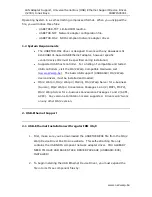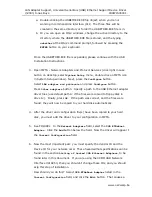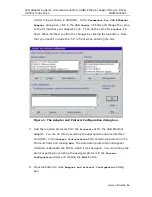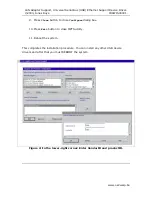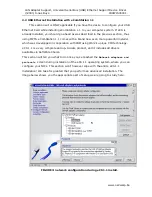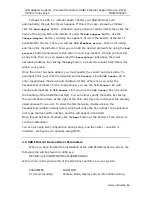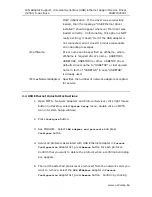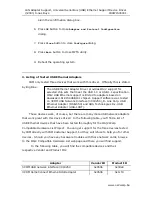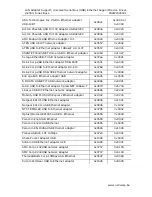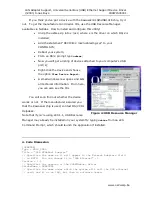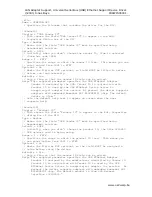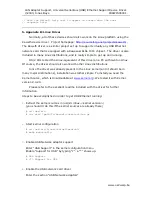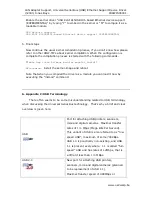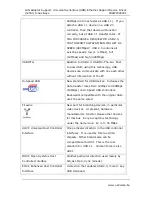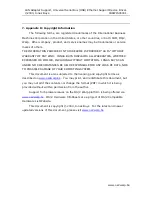
LAN Adapter Support, Universal Serial Bus (USB) Ethernet Support Device Driver.
©2003, Jonas Buys.
JBHWIS00001.
www.os2warp.be
Enable the kernel driver “USB KLSI KL5USB101-based Ethernet device support
(EXPERIMENTAL)” by typing “Y” to embed in the kernel or “M” to compile it as a
loadable module.
USB Network adaptors
USB KLSI KL5USB101-based Ethernet device support (EXPERIMENTAL)
5. Final steps
Now continue the usual kernel compilation process, if you don’t know how please
refer to other HOW-TO’s about kernel compilation. When the configuration is
complete the compilation process is started with the following commands.
#
make dep clean bzImage modules modules_install
Afterwards,
install the kernel-image and reboot.
Note that when you compiled the driver as a module you can load it now by
executing the “insmod” command.
6. Appendix C: USB Terminology
There often seems to be some misunderstanding related to USB terminology
when discussing the Universal Serial Bus technology. That’s why a brief and clear
overview is given here:
USB
Port for attaching USB printers, scanners,
mice and digital cameras. Maximal transfer
rates of 1 ½ Mbps (Mega Bits Per Second).
This variant of USB is also referred to as “low
speed USB”; maximum of some 700KBps.
USB 1.0 is practically non-existing, and USB
1.1 is present everywhere. 1.1 is called “full-
speed” USB and has rates of 12Mbps, that is
a little lit less than 1 ½ MBps.
USB 2.0
New port for attaching USB printers,
scanners, mice and digital cameras (planned
to be replacement of USB 1.1).
Maximal transfer speed of 480Mbps or


